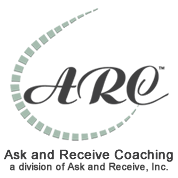What is Coaching?
 The International Coach Federation (ICF) defines coaching as partnering with clients in a thought-provoking and creative process that inspires them to maximize their personal and professional potential.
The International Coach Federation (ICF) defines coaching as partnering with clients in a thought-provoking and creative process that inspires them to maximize their personal and professional potential.
How often in life do we have the opportunity to be actively listened to without judgment?
Coaching creates a space where there is mutual respect and trust for us to tap into our own inner wisdom. Coaching involves a process where you are actively listened to and asked powerful questions that lead to new awareness and possibilities.
Coaching is a client-driven process (what would you like to coach around?) which helps you improve your outlook on work and life while improving your leadership skills, unlocking your potential and creating space for you to discover possibilities for creating the life of your dreams.
The coach’s responsibility is to:
- Discover, clarify and align with what the client wants to achieve
- Encourage client self-discovery
- Elicit client-generated solutions and strategies
- Hold the client responsible and accountable
How is coaching distinct from other service professions?
Professional coaching focuses on setting goals, creating outcomes and managing personal and organizational change. Coaching is distinctly different from other professions:
-
- Therapy: Therapy typically deals with healing pain, dysfunction, and conflict within an individual or in relationships. The focus is often on resolving difficulties arising from the past that hamper an individual’s emotional functioning in the present. Often therapy includes a diagnosis. Coaching, on the other hand, supports personal and professional growth based on self-initiated change in pursuit of specific actionable outcomes. Coaching is future-focused, and the coaching relationship emphasizes action, accountability, and follow-through.
-
- Consulting: Individuals or organizations retain consultants for their expertise. While consulting approaches vary widely, the assumption is the consultant will diagnose problems and prescribe and, sometimes, implement solutions. With coaching, the assumption is that individuals or teams are capable of generating their own solutions, with the coach supplying supportive, discovery-based approaches and frameworks.
-
- Mentoring: A mentor is an expert who provides wisdom and guidance based on his or her own experience. Mentoring may include advising, counseling and coaching. The coaching process does not include advising or counseling and focuses instead on individuals or groups setting and reaching their own objectives.
-
- Training: Training programs are based on objectives set out by the trainer or instructor. Though objectives are clarified in the coaching process, they are set by the individual or team being coached, with guidance provided by the coach. Training also assumes a linear learning path that coincides with an established curriculum. Coaching is less linear, without a set curriculum.
-
- Athletic Development: Though sports metaphors are often used, professional coaching is different from sports coaching. The athletic coach is often seen as an expert who guides and directs the behavior of individuals or teams based on his or her greater experience and knowledge. Professional coaches possess these qualities, but their experience and knowledge of the individual or team determines the direction. Additionally, professional coaching does not focus on behaviors that are being executed poorly or incorrectly. Instead, the focus is on identifying opportunity for development based on individual strengths and capabilities. Resource: Coachfederation.org
Please contact us for more information.
